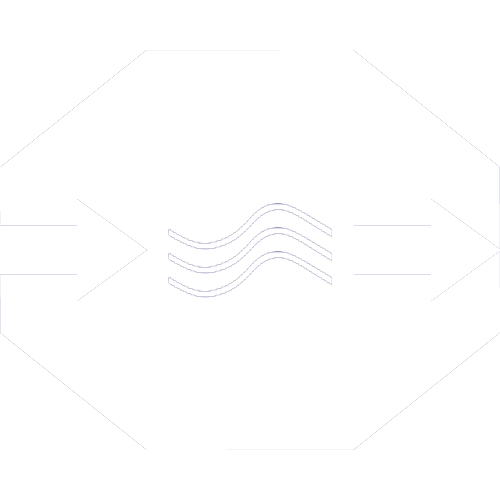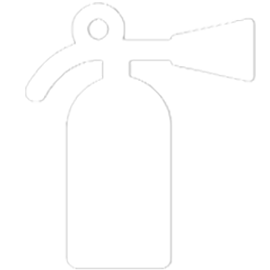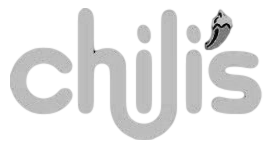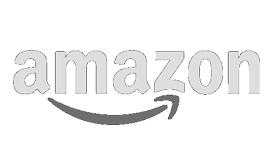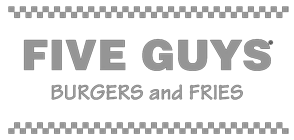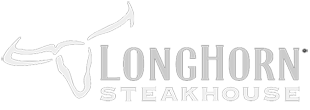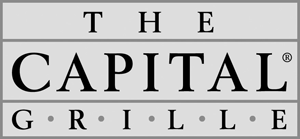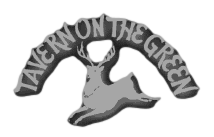Maintaining efficiency within any restaurant or commercial kitchen is one of the crucial elements of ensuring efficient operations and high-quality service. One often overlooked aspects that significantly impacts kitchen efficiency is restaurant hood and exhaust cleaning.
These essential components play an incredibly important role in ventilation, temperature regulation, and overall kitchen hygiene. However, when neglected, dirty hoods can lead to a range of issues that hinder the productivity and effectiveness of your kitchen staff. Here, we will explore how dirty hoods affect kitchen efficiency and why regular hood cleaning is essential to the performance of any commercial kitchen.
An Overview of How Restaurant Hoods Affect Kitchen Efficiency
In any commercial kitchen, the kitchen hood, also known as an exhaust hood, plays a critical role in maintaining a functional and efficient workspace. Restaurant hoods are designed to remove airborne grease, fumes, smoke, odors, heat, and steam through the filtration and evacuation of the air.
What are Restaurant Hoods and How Do They Work?
Kitchen hoods are ventilation devices that hang above the cooking area, typically above stoves, fryers or grills. Their primary purpose is to improve the air quality by capturing & removing contaminants that are created during cooking. There are two main types of kitchen hoods used in commercial kitchens:
- Exhaust Hoods: These hoods filter air, sending it outside the building, ensuring that smoke, steam, and other pollutants are effectively removed from the kitchen.
- Recirculating Hoods: These hoods filter the air to remove grease and odors before sending the clean air back into the kitchen.
Importance of Clean Hoods for Optimal Kitchen Performance
For a kitchen hood to perform its function effectively, it must be kept clean and free from obstructions. Grease and grime can accumulate over time, leading to several issues that directly affect kitchen efficiency:
- Ventilation Efficiency: Clean hoods ensure that air can flow freely, maintaining proper ventilation. This is crucial for controlling kitchen temperature, removing contaminants, and providing a comfortable working environment for the staff.
- Energy Efficiency: When hoods are clean, they operate more efficiently, reducing the energy required to ventilate the kitchen. This not only helps in maintaining a consistent kitchen environment but also lowers utility costs.
- Equipment Longevity: Regular cleaning of kitchen hoods prevents grease buildup that can drip onto cooking equipment. This helps in preserving the lifespan of kitchen appliances and reduces the need for frequent maintenance or replacements.
- Regulatory Compliance: Health and safety regulations require commercial kitchens to maintain a certain level of cleanliness. Regular restaurant hood cleaning is an important element in complying with these regulations, avoiding fines and ensuring a safe kitchen environment.
Maintaining a clean kitchen hood is essential to ensuring that your kitchen operates in the most efficient way possible. In the next sections, we’ll delve deeper into the specific ways dirty hoods can hinder your kitchen’s performance and the benefits of regular hood cleaning.
Ways Dirty Hoods Impact Kitchen Efficiency
Dirty hoods in a commercial kitchen can significantly impair efficiency in various ways. The buildup of grease, grime, and other contaminants can create a cascade of issues that affect airflow, equipment performance, and overall kitchen operations. Here’s a detailed look at how dirty hoods can negatively impact kitchen efficiency:
Impaired Airflow and Ventilation
One of the primary functions of a kitchen hood is to maintain the necessary air-flow and ventilation. When hoods become clogged with grease and dirt, this airflow is restricted.
- Restricted Airflow: Grease and grime buildup obstructs the air passages, reducing the hood’s ability to effectively remove smoke, steam, and odors from the kitchen. This leads to poor ventilation, causing the kitchen to become hot, smoky, and uncomfortable for staff.
- Temperature and Humidity Control: Poor ventilation affects the ability to maintain a reasonable temperature in the kitchen, making the overall environment hotter and uncomfortably humid. This not only makes it difficult for kitchen staff to work efficiently but also has the potential of impacting the overall quality of food preparation and storage.
Reduced Effectiveness of Cooking Equipment
Another major factor: dirty hoods can lead to grease and grime settling on kitchen equipment, which can severely impact their performance.
- Equipment Performance: Grease buildup on stoves, ovens, and other appliances can cause them to operate less efficiently. For example, burners may not heat evenly or reach optimal temperatures, leading to longer cooking times and inconsistent food quality.
- Increased Energy Consumption: When cooking equipment is covered in grease, it has to work harder to achieve the desired results. This increased effort translates into higher energy consumption, leading to increased utility bills and a less eco-friendly kitchen.
Frequent Downtime for Repairs and Maintenance
Dirty hoods contribute to more frequent equipment breakdowns and maintenance needs.
- Increased Breakdowns: The accumulation of grease can cause equipment to malfunction more often, which can often lead to unplanned downtime. This disrupts kitchen operations, causing delays and reducing overall productivity.
- Maintenance Interventions: What’s more, more frequent maintenance is often required to address the issues caused by dirty hoods. This not only incurs additional costs but also takes time away from regular kitchen operations, further affecting efficiency.
Slower Cooking Processes
Dirty hoods can impact the speed and efficiency of cooking processes, leading to longer preparation times.
- Heat Distribution: Grease and grime can affect how heat is distributed in the cooking area. This can result in uneven cooking temperatures, making it difficult to prepare food quickly and efficiently.
- Preparation Delays: Longer cooking times due to inefficient equipment and poor ventilation can cause delays in food preparation, impacting service speed. This can lead to longer wait times for customers, affecting their overall dining experience and satisfaction.
Dirty hoods create multiple inefficiencies that can drastically affect the performance of a commercial kitchen. From impaired airflow and reduced equipment effectiveness to frequent downtime and slower cooking processes, the impact is far-reaching. Now, let’s explore how regular hood cleaning can mitigate these issues and enhance kitchen efficiency.
Enhancing Kitchen Efficiency with Regular Hood Cleaning
Regular hood cleaning by a certified hood cleaning company is essential for maintaining the efficiency and productivity of a commercial kitchen. Not only does this maintain compliance with local regulations, but by ensuring that kitchen hoods are clean and functioning optimally, you can prevent many of the issues associated with dirty hoods and enhance overall kitchen performance.
Here’s how regular hood cleaning can boost kitchen efficiency:
Improved Airflow and Ventilation
Clean hoods allow for unobstructed airflow, which is crucial for maintaining a healthy and productive kitchen environment.
- Enhanced Air Quality: With regular cleaning, kitchen hoods can efficiently remove smoke, steam, and odors, ensuring that the air quality remains high. This helps in creating a more comfortable and safe working environment for kitchen staff.
- Temperature Control: Proper ventilation helps in regulating kitchen temperatures, preventing the area from becoming excessively hot and humid. This not only improves the comfort level for staff but also aids in maintaining optimal conditions for food preparation and storage.
Optimal Performance of Cooking Equipment
Keeping kitchen hoods clean ensures that cooking equipment remains free from grease buildup, allowing them to operate at peak efficiency.
- Efficient Operation: Clean hoods prevent grease from settling on stoves, ovens, and other appliances, ensuring that they function properly. Ultimately, this allows more consistent cooking temperatures and preparation times, which can enhance overall kitchen productivity.
- Reduced Energy Consumption: When equipment operates efficiently, it requires less energy to perform. This not only lowers utility costs (by up to 20%) but also contributes to a more sustainable and eco-friendly kitchen.
Minimizing Downtime and Disruptions
Perhaps most importantly, regular hood cleaning helps in preventing equipment malfunctions and the need for maintenance, which can lead to downtime.
- Fewer Breakdowns: By preventing grease accumulation, regular cleaning reduces the likelihood of equipment breakdowns. This minimizes unplanned downtime, ensuring that kitchen operations run smoothly and without interruption.
- Consistent Productivity: With fewer disruptions due to equipment issues, kitchen staff can focus on their tasks, leading to more consistent and efficient food preparation and service.
Faster and More Efficient Cooking Processes
A clean hood ensures proper heat distribution and ventilation, which is critical for efficient cooking processes.
- Shorter Cooking Times: Clean hoods allow for better heat distribution, ensuring that food is cooked evenly and quickly. This reduces preparation times and allows for faster service, improving customer satisfaction.
- Improved Service Speed: With efficient cooking processes, the kitchen can handle orders more swiftly, reducing wait times for customers and enhancing their overall dining experience.
Wrapping Up
Maintaining clean kitchen hoods is essential for ensuring a restaurant or commercial kitchen that performs at it’s peak. Dirty hoods impair airflow, they reduce equipment effectiveness, increase downtime, and slow down the overall cooking processes. All of which can negatively impact kitchen performance. Regular hood cleaning addresses these issues, leading to improved ventilation, better equipment operation, fewer disruptions, and faster cooking times.
At Done Right Hood & Fire Safety, we specialize in professional hood cleaning services that help you maintain a clean and efficient kitchen environment in markets from NYC to South Florida.
Don’t let dirty hoods hinder your kitchen’s performance—contact us today to schedule a cleaning and experience the benefits of a the most efficient kitchen, possible.







